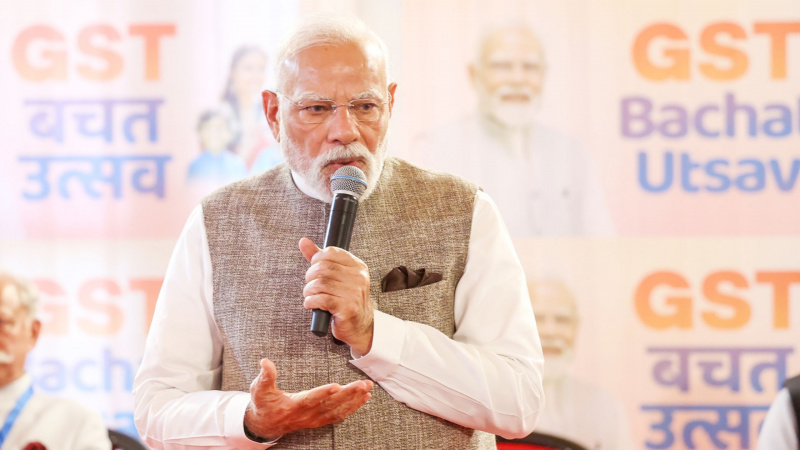How New IT Rules Will Change The Internet In India
What are the rules written under these guidelines? Social media platforms should locate grievance officers and content tracking to the first creator in India.
- by Gaurav Grover 2021-03-01 07:13:54
The Indian government has taken its first big steps towards regulating big technology platforms. The government's new Intermediary Guidelines for Information Technology Act (IT Act) imposes certain limitations on platforms and how they operate in India.
The Information Technology Rules (Intermediary Guidelines and Digital Media Code of Ethics), 2021, have been created to regulate technology platforms operating in India. These policies will supersede the platform policies, which must comply with the new rules. These rules, along with an upcoming Personal Data Protection (PDP) bill and an anticipated Cybersecurity Law, will define how the Internet and Internet-based businesses operate in the country in the future. They also indirectly regulate what you can or cannot see or access online. In essence, they will decide the future of the Internet in India.
How does it affect users and platforms?
Platforms will have to review their own policies and make sure they adhere to these rules and more that they can stick with a PDP bill. In some cases, they will have to review their algorithms to ensure compliance, which can lead to higher research and development (R&D) costs. Platforms that are not making a lot of money from India may also choose to leave the country, rather than comply. For users, this could mean regulations on what they say or do on the Internet. Their activities will come under increased scrutiny and there have been concerns about misuse by both the platforms and the government.

What are the rules written under these guidelines?
Social media platforms should locate grievance officers and content tracking to the first creator in India. A code of ethics, procedures, and safeguards in relation to digital/online media have been put in place. Digital media will follow the Journalistic conduct of the Press Council of India and the Programs Code under the Cable Television Network Regulation Act.
What specific rules are being criticized?
One of the main concerns is that encrypted messaging applications will need to collect more user data to trace messages back to the first originator. This also conflicts with the rules of extraterritorial jurisdiction established in the Information Technology Act. The new rules can cause people to get in trouble even if they share a tweet/message that originates outside of India and thus shoot the messenger instead of the actual author. Experts said that the information technology law should not apply to the media and that holding them to the same standards could lead to unfair news censorship.
Will messaging applications get access to chats?
Not necessarily. While this means applications will have to collect more data, experts said there are ways to "fingerprint" each text, by which the first creator of the text can be accessed without reading its content. Think of it this way: the police legally confiscate a phone, read a text, and then ask the app to find the first creator of the text. The app uses the fingerprint of that message to figure out where it started. This is technically possible and applications can do it without even having to read the text.
Also Read: Covid vaccine booking open on Co-WIN2.0: How to register
POPULAR POSTS
The Agentic Revolution: Why Salesforce Is Betting Its Future on AI Agents
by Shan, 2025-11-05 10:29:23
OpenAI Offers ChatGPT Go Free in India: What’s Behind This Big AI Giveaway?
by Shan, 2025-10-28 12:19:11
Zoho Products: Complete List, Launch Years, and What Each One Does
by Shan, 2025-10-13 12:11:43
Arattai vs WhatsApp: Which Messaging App Should You Choose in 2025?
by Shan, 2025-10-10 11:55:06
Top Buy Now Pay Later (BNPL) Apps for Easy Shopping in 2025
by Shan, 2025-09-22 10:56:23
iPhone 17 Sale in India Begins: Full Price List, Launch Offers and Store Availability
by Shan, 2025-09-19 12:00:45
Apple September 2025 Event Recap: iPhone 17, iPhone Air, Apple Watch Series 11, and India Pricing Revealed
by Shan, 2025-09-10 09:55:45
RECENTLY PUBLISHED

Loan EMIs to Drop as RBI Slashes Repo Rate - Full MPC December 2025 Highlights
- by Shan, 2025-12-05 11:49:44

Pine Labs IPO 2025: Listing Date, Grey Market Premium, and Expert Outlook
- by Shan, 2025-11-05 09:57:07

Top 10 Insurance Companies in India 2026: Life, Health, and General Insurance Leaders Explained
- by Shan, 2025-10-30 10:06:42

Best Silver Investment Platforms for 2025: From CFDs to Digital Vaults Explained
- by Shan, 2025-10-23 12:22:46

Zoho Mail vs Gmail (2025): Which Email Platform Is Best for Businesses, Startups, and Students?
- by Shan, 2025-10-09 12:17:26

PM Modi Launches GST Bachat Utsav: Lower Taxes, More Savings for Every Indian Household
- by Shan, 2025-09-24 12:20:59




 Subscribe now
Subscribe now 